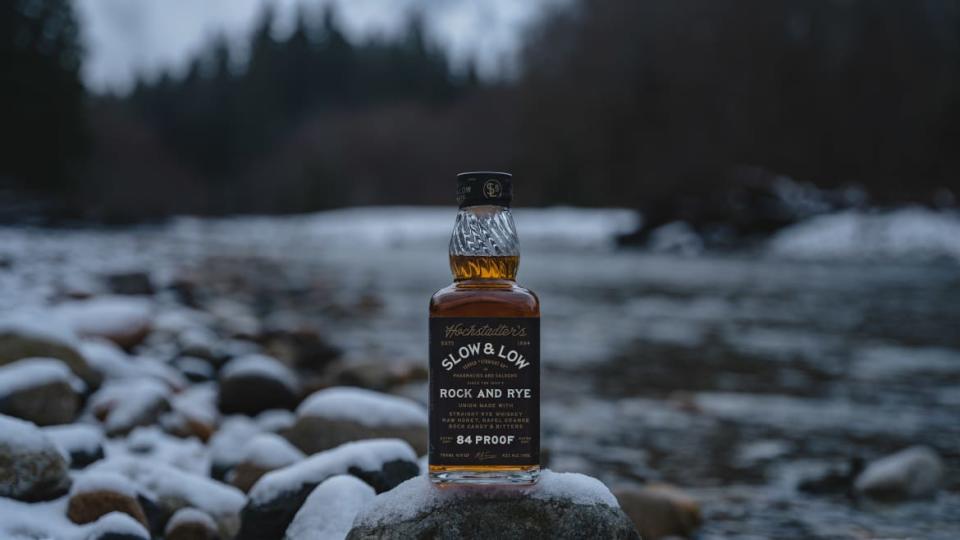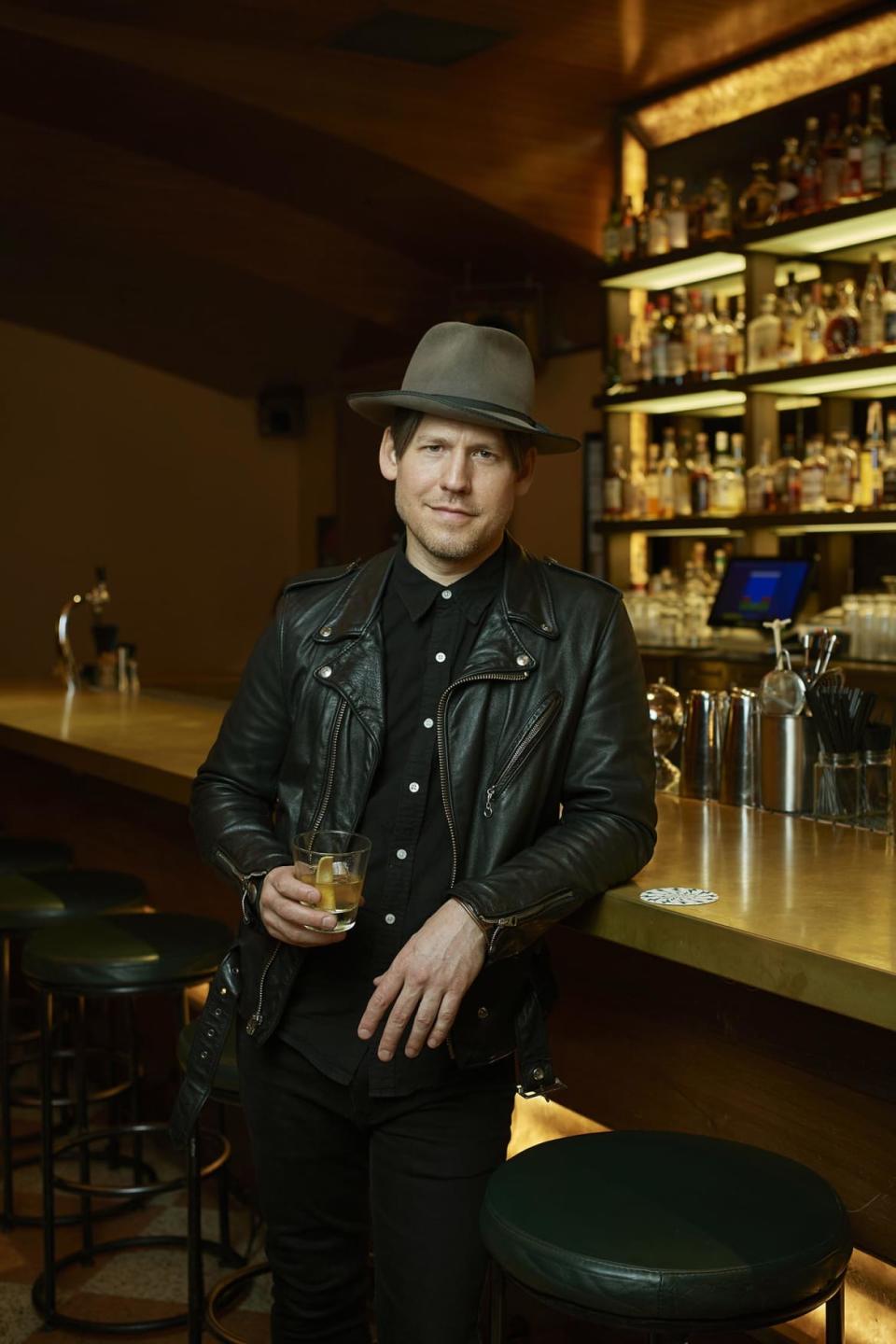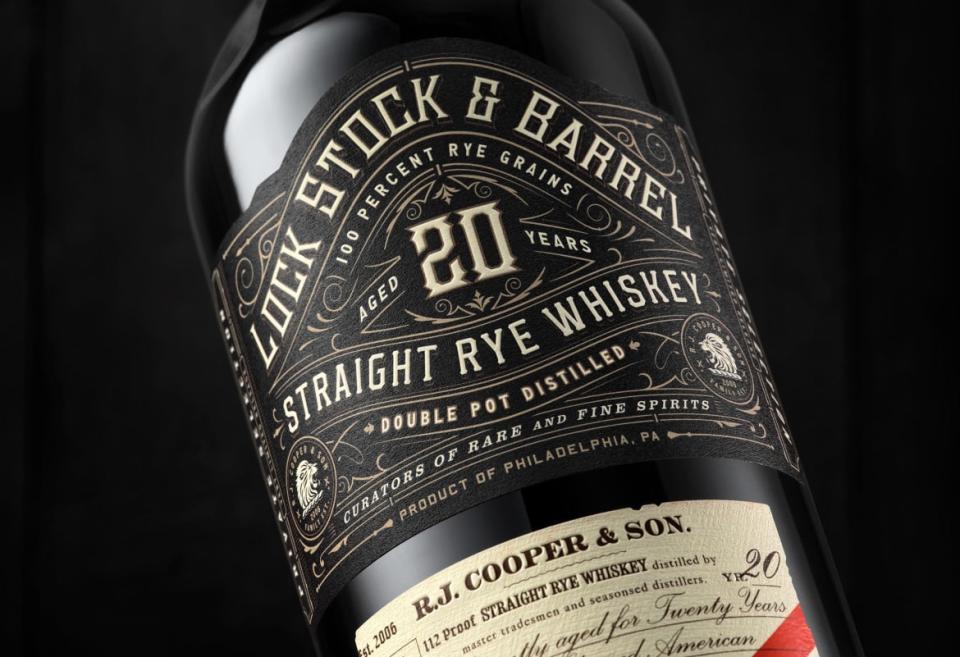Channeling a Ghost to Create the Next Hit Liquor Brand

Five years ago this April the man who changed what America drank died at the age of 39.
Rob Cooper was a spirits entrepreneur and a visionary in the craft cocktail movement. He was both friend to and student of the emerging cadre of high-profile bartenders in the early and mid-2000s. He listened to their commentary and complaint. He figured out what they wanted, often before they did.
How to Avoid Overhyped and Overpriced Bourbon
Building a Whiskey Empire in 85 Years
In 2007, he developed St-Germain Elderflower Liqueur, which swiftly became a bartender’s darling. Then sensing a demand for historic products that had gone extinct, he brought Creme Yvette out of the crypt and revived it. When he overheard bartenders excitedly talking about old-school rye—a style of whiskey that had come perilously near extinction—he tracked down and acquired stores of straight Canadian rye, revived the moribund Hochstadter’s line and launched Lock, Stock & Barrel. And before canned cocktails were everywhere, Cooper rolled out Hochstadter’s Slow & Low in 2011, which was essentially a rye-based Old-Fashioned sold in both ornate bottles and a stubby 100ml can, since copied by others.

Cooper Spirits has been in a holding pattern since Cooper’s death and hasn’t displayed the fizz and ferment the founder brought to the enterprise. “I think that, for a second, maybe the company was a little rudderless, after the devastating loss,” says Chad Solomon, director of trade advocacy and innovation at Cooper Spirits.
Now a crew is aiming to put the rudder back in the water—with the craft helmed in part by folks who helped get Cooper Spirits under sail the first time. That includes Solomon, who has been at Cooper Spirits for about a year. He’s charged with essentially channeling Rob Cooper’s vision, reinvigorating the existing spirits line and developing new products.
“The spirit and the way Rob built the business are our guideposts,” he says. “We’re constantly looking at ways to be innovative.”
So, can Cooper Spirits bottle lightning again?
Solomon was among the cadre of pioneering craft bartenders. He worked at seminal New York bar Milk & Honey in the early 2000s and was on the opening crew at Pegu Club in 2005.
Among the customers who walked into Pegu Club in the summer of 2006 was Rob Cooper. Cooper came from a family of liquor makers. His grandfather bought Charles Jacquin et Cie, Inc., a producer of spirits and liqueurs, after Prohibition. His father became Jacquin’s product developer (and later assumed control of the company). While there, Norton “Sky” Cooper created Chambord, a wildly successful French raspberry liqueur that became a go-to ingredient for Champagne cocktails in the 1980s. (The family later sold it to Brown-Forman in 2006.)
Rob Cooper also joined the family business, and on a trip to London in 2001, he enjoyed a cocktail made with elderflower syrup. This got him thinking: Why not an elderflower liqueur? He sought to develop it at Jacquin’s, but the idea failed to gain traction. As Cooper once recounted to the Wall Street Journal, his father would walk by and ask, “Are you still working on the flower shit?”
So Cooper formed Cooper Spirits and brought out St-Germain independently in 2007. Like Chambord, it swiftly became a go-to ingredient, cropping up in bars from coast to coast. St-Germain was like a character actor who appeared in every hit film; the flavor was instantly recognizable, but the name was more famous inside the industry than out. (Bringing to mind the saying about oaks and acorns, Cooper’s brother and rival, John, started his own company and created Domaine de Canton, a popular ginger flavored liqueur. It was later bought by Heaven Hill.)

At Pegu Club, Rob Cooper got talking to Solomon. The two hit it off—Solomon had asked him when he would bring back Creme Yvette, a violet and berry liqueur that Jacquin’s discontinued in 1969. Cooper solicited Solomon’s opinion about St-Germain and sent him prototypes for feedback. And after Solomon and his partner (and later wife), Christy Pope, started Cuffs & Buttons, a bar consultancy, Cooper hired them to develop prototypes of the taste, name and label design of Hochstadter’s Slow & Low. Then in 2013, Cooper sold St-Germain to liquor conglomerate Bacardi and began to focus on the other products in his portfolio and develop new ones.
In late 2019, after Cooper’s unexpected death, Solomon and Katie Cooper, Rob’s widow and the company’s owner, reconnected. “We started a conversation about taking stock of Cooper Spirits, rebuilding the team, and trying to reassemble what Rob had built,” he says. (Katie Cooper declined to be interviewed for this story.)
Solomon came on board, as did Pope, who was hired as trade marketing manager. Shortly after, former regional sales manager Bryan Townsend returned as vice-president of sales, joining Gerri Miller, Cory Seminowicz, and Jack Pund, all of whom had been there since close to the company’s inception. “So, you’ve got a core team where we all remember what the early days were like,” Solomon says. Think: Ocean’s 11, but a liquor caper.

Before Solomon could get his feet under him, the coronavirus descended. “The pandemic clearly created just a ton of challenges,” Solomon says. The close connections the company had forged with bartenders over the years became essentially meaningless as bars shuttered. But the company has been buoyed by sales of Slow & Low to consumers through retail outlets. And the larger format bottles have proven popular at some bars that remained open but sought to reduce “touch points” when making cocktails. “Even with all its challenges, 2020 ended up being a very productive year,” Solomon says.
Forget Bottled Water: Fiji’s Latest Export to America Is Rum
The Incredible Shrinking Liquor Bottle
Solomon is optimistic that the craft bar world will regain much of its effervescence as both the fears and the realities of the pandemic begin to fade. “Coming out of this, we’re going to go through a period of familiarity,” he says, with an emphasis on classics and the tried and true.
“But then inevitably, the pendulum will start to swing the other way, people are going to get creative and we’ll probably start the cycle anew.”
Solomon and others are looking at ways of extending the existing Cooper Spirits product lines, building on Rob Cooper’s legacy. “We’re looking at each of the brands,” he says, noting that they have the good fortune of a drawing on a deep whiskey library that Cooper had amassed for blending.
Among the first of the new products to roll out, slated for April, is a collaboration with Intelligentsia Coffee—a coffee-inflected Old-Fashioned inspired by Café Brûlot, a famed New Orleans drink. More is in the pipeline. “We’ve got some very, very cool plans for Creme Yvette,” he says vaguely, which will involve some deep research into its French history. “I’ll just leave it at that.”
“We’re making sure we’ve got good momentum and are positioning ourselves to continue to grow and get back to what this company has done very well,” Solomon says. “These are some big shoes to step into.”
Get our top stories in your inbox every day. Sign up now!
Daily Beast Membership: Beast Inside goes deeper on the stories that matter to you. Learn more.

 money
money 